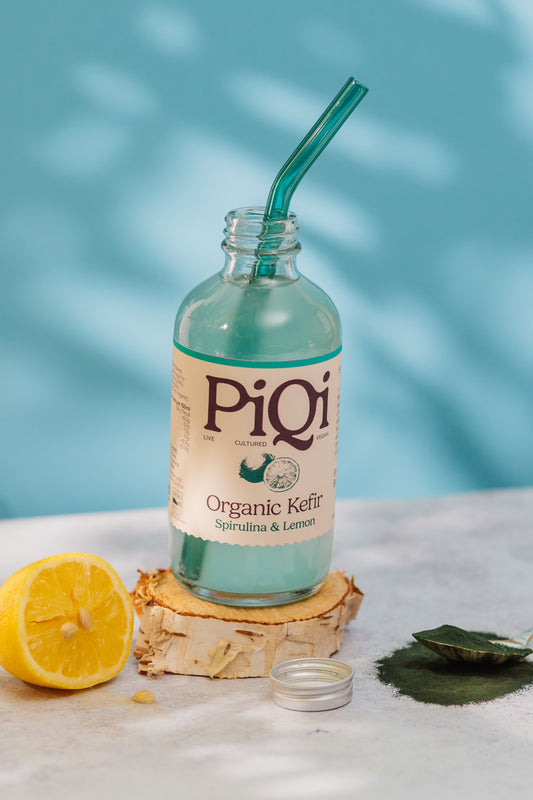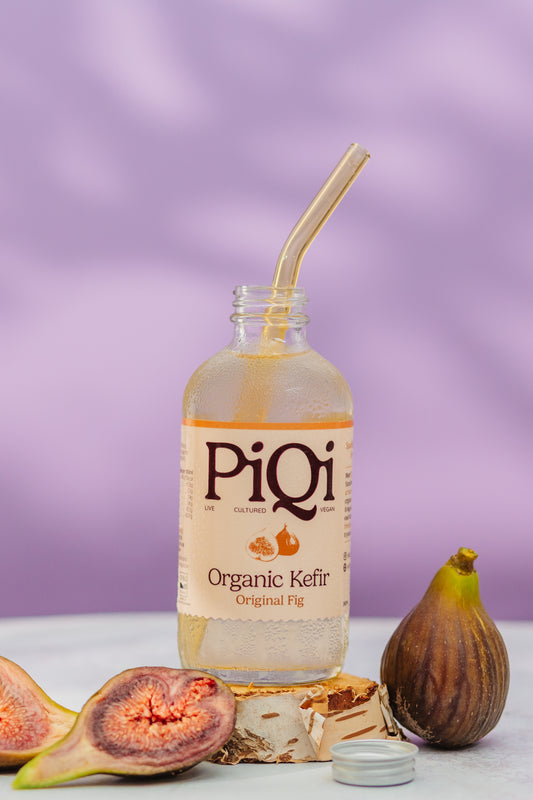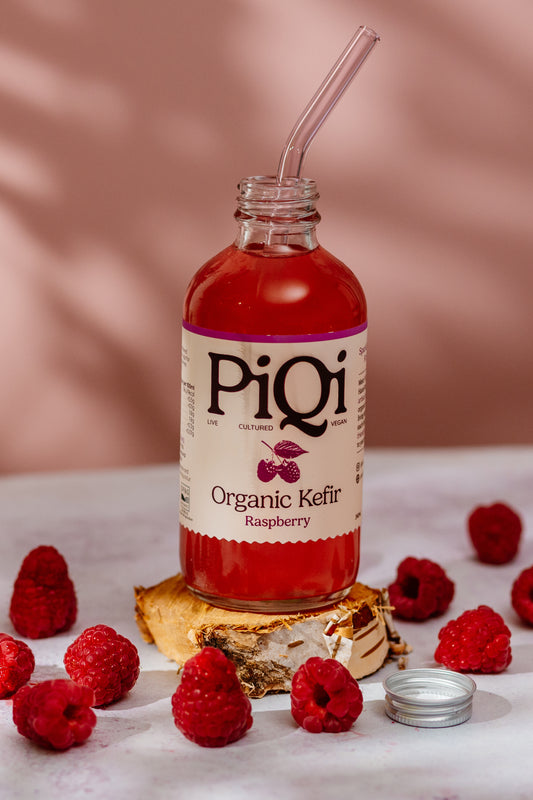Is your stomach sending distress signals today? If you're experiencing issues like bloating, constipation, or excess gas, it's a wake-up call that your gut needs some extra care.
Your gut plays a pivotal role in your overall well-being, impacting digestion, nutrient absorption, immune function, and even your emotional state. To supercharge your gut health, follow our team’s top 5 habits to transform your digestive system and give your immune system a boost.
- Embrace a Fiber-Rich Diet 🥦
It's no secret that a balanced diet is fundamental for gut health, but let's delve deeper into one of its essential components: fiber. The average adult consumes only about 15 grams of fiber daily, falling short of the recommended 25-38 grams.
Fiber is fuel for the friendly bacteria in your gut, promoting a diverse and flourishing community. In a study published in the journal Nature, researchers found that a high-fiber diet can lead to increased microbial diversity, which is often linked to better overall health.
🌱Tip: Start your day with a fiber-packed breakfast, like oatmeal with berries and chia seeds. Gradually increase your fiber intake by incorporating fiber rich veggies into your meals. Check our post on Top Fiber-rich foods
- Get Probiotic Support with Fermented Foods 🥬
Raw, fermented foods are a treasure trove of naturally occurring probiotics and are known for their ability to boost your gut's well-being. From sauerkraut and kimchi to yogurt and kefir, these culinary delights are teeming with beneficial lactic acid bacteria that can work wonders for your digestive system. Research published in the journal "Nutrients" has demonstrated the positive impact of a diet rich in fermented foods on gut health, showing that they can aid digestion and contribute to a balanced gut microbiome.
🌱Tip: Fermented foods often have a unique and diverse range of flavours, from bold and tangy to mild and sweet. Experiment with various options to find the ones that best suit your palate and can be incorporated into your regular diet. If you're new to the world of fermentation, consider starting with fermented drinks. They are an easy and enjoyable way to introduce probiotics into your routine. Look for options like water kefir, kombucha, and kvass, which come in a variety of delightful flavours. When shopping for ferments, ensure they are located in the chilled section, and look for labels that mention "live cultures" to guarantee you're getting the full probiotic benefits.
- Manage Stress 🍵
Chronic stress can take a toll on your gut health. The brain-gut connection is profound, and when you're stressed, your gut can respond with symptoms such as cramps, bloating, and altered bowel movements. In a study published in Psychosomatic Medicine, researchers found a strong association between chronic stress and gastrointestinal symptoms. Reducing stress by practicing techniques like mindfulness, meditation, or yoga can help restore harmony to your gut and overall well-being.
🌱Tip: Try creating a daily mindfulness routine. Whether it's meditation, deep breathing exercises, or simply a few moments of solitude, these practices can help reduce stress and promote gut harmony.
- Introduce Regular Physical Activity🧘🏻♀️
Regular physical activity is a game-changer for gut health. Exercise has been shown to enhance digestive processes, reduce the risk of constipation, and promote a diverse gut microbiome. Even modest exercise, like a brisk walk, can do wonders. A study published in the American Journal of Gastroenterology revealed that physical activity is associated with a lower risk of gastrointestinal symptoms. So, make it a point to get moving for the sake of your gut.
🌱Tip: Set a reminder on your calendar at regular intervals to do a quick light stretching routine and make it a habit to take a short walk after meals. It aids in digestion and provides a great opportunity to get some exercise in your daily routine.
- Get Quality Sleep 🌙
Quality sleep is non-negotiable for optimum gut health. Sleep deprivation can disrupt the balance of your gut microbiome, leading to digestive issues and potentially more severe conditions. In a study published in the journal Cell, researchers found that sleep disturbances can significantly impact gut bacteria. To support your gut's natural repair and maintenance processes, aim for 7-9 hours of quality sleep each night.
🌱Tip: Create an evening bedtime ritual to start winding down in a relaxed environment. Avoid screens and other harsh disruptions to signal to your body that it's time to rest. Consider reading a book or practicing gentle stretching before bed to enhance your sleep quality.
Incorporating these data-backed habits into your daily routine can transform your gut health and help you feel more vibrant. Remember, it's not about making drastic changes overnight; it's about taking it one step at a time. Be kind to yourself on this journey and your gut and your body will thank you.







1 comment
Great read! Maintaining gut health is so important for overall well-being, and I appreciate the helpful insights shared in this post. Looking forward to learning more tips and advice on this topic!